Italy has long been a sought-after destination for travelers, but with the recent introduction of a new digital nomad visa, it’s quickly becoming a hotspot for remote workers.

With a vibrant culture, picturesque landscapes, and a thriving startup scene, Italy offers countless opportunities for digital nomads looking to live and work abroad.
Remote working in Italy, everything you need to know
Ready to make the most of your remote working adventure in Italy?
We’re here to help. From choosing the perfect Italian city that suits your needs to finding the best accommodation, and discovering the coworking spaces and cafes with the most reliable Wi-Fi, our guide has got you covered.
Does Italy have a digital nomad visa?
Italy’s digital nomad visa was approved in March 2022. This long-awaited visa allows remote workers and self-employed individuals to legally live and work in Italy for up to one year, renewable for additional year long periods.
The application process for Italy’s digital nomad visa is straightforward. Applicants must provide proof of employment or self-employment with an income level above Italy’s minimum wage, as well as valid health insurance and a clean criminal record.
Once approved, digital nomads can take up residency in any Italian city or town. With high-speed internet widely available and abundant co-working spaces, Italy is an appealing destination for those looking to embrace the remote lifestyle against the backdrop of incredible history, art, cuisine and culture.
Note: You must apply for a residence permit within the first eight days of being in Italy.
How to apply for the digital nomad visa in Italy:
For your Italian digital nomad visa availability, prepare to provide proof of the following:
- Minimum income requirement
- A clean criminal record
- Health insurance
Give yourself at least two months to prepare your documents, apply, and receive approval. You might also need to meet with an Italian Consulate or Embassy in your home country.
Read more: 12 European Countries Offering Visas for Freelancers (+ How to Apply)
Is Italy good for digital nomads?
Italy is among the best places for digital nomads because of the many opportunities and activities on offer.
The country offers a wonderful mix of beautiful landscapes, rich culture, delicious cuisine, and modern amenities that make it an ideal place to work and travel.

Here are some of the reasons Italy is ideal as a remote working destination:
- Welcoming atmosphere: Italy’s new digital nomad visa and friendly locals welcome travellers working remotely.
- Delicious food: Italian cuisine is one-of-a-kind, with world-famous pizza, unique pasta dishes, cured meats, fresh vegetables, and the best gelato.
- Endless activities: From hiking and skiing to dining and drinking, there are many things to do in Italy. The landscapes are stunning, and the culture is fascinating, perfect for digital nomads who love to explore new places.
- Vibrant arts scene: Some of the world’s most renowned artists, including Leonardo da Vinci and Michelangelo, are from Italy. And cities like Florence and Venice are works of art themselves.
- Idyllic countryside: Whether you live full-time in Italy’s countryside or take a short trip, it’s one of the most magical attractions in the world. Travellers can appreciate hilltop villages, beautiful cathedrals, and world-class farm-to-table menus.
- Inviting weather: Italy’s four seasons allow you to plan your location and timeline accordingly. That said, many destinations offer mild temperatures year-round.
- Convenient travelling: With efficient public transportation, traveling around Italy is easy. Several major airports also make it easy to travel to and from Italy. The Schengen Visa also makes it convenient for many passport-holders to travel visa-free in the Schengen Zone.
Where do digital nomads live in Italy?
Italy for digital nomads is ideal because cities like Florence, Milan, Rome, and Naples have many opportunities,
There’s something for everyone, whatever your budget, from locations with picture-perfect landscapes to cultural destinations. The Italian cities below welcome digital nomads, each offering a unique experience.
Florence
As one of the most popular Italian cities, Florence has just about something for every digital nomad. And the entire city is a UNESCO World Heritage Site.

Florence is nice but also relaxed. Locals are friendly, and there are several famous attractions, opportunities for remote workers, and many museums and art galleries.
Although Florence is more expensive than other Italian cities, its cost of living is less than in some similar locations.
Milan
If you enjoy elegant, fashion-focused destinations, Milan is an excellent Italy digital nomad city.
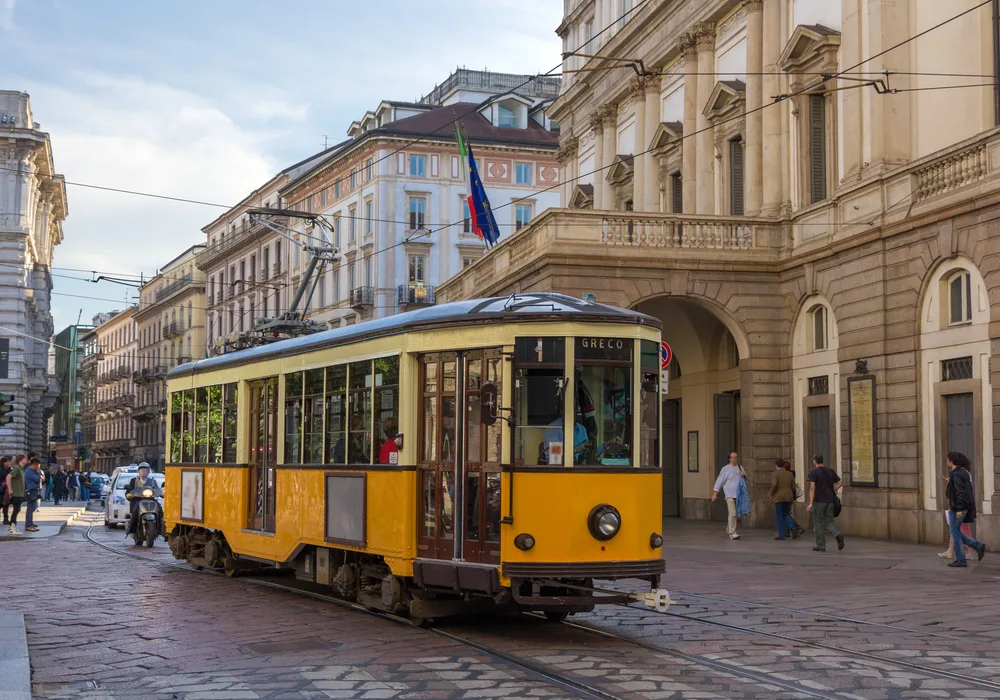
Milan has intricate buildings, financial headquarters, and a large international airport (which makes travel easy). Remote workers appreciate its high internet speeds, various coworking spaces, accommodation options, and flashy nightlife scene.
With its sophistication and convenience comes a higher cost of living, so this is something to keep in mind.
Rome
Rome isn’t only Italy’s capital, it’s one of the most cultural places in Europe. It’s the ideal destination for digital nomads who enjoy bustling cities filled with exciting activities and unique attractions, including many historical sites and museums, such as the Colosseum and the Vatican Museums.
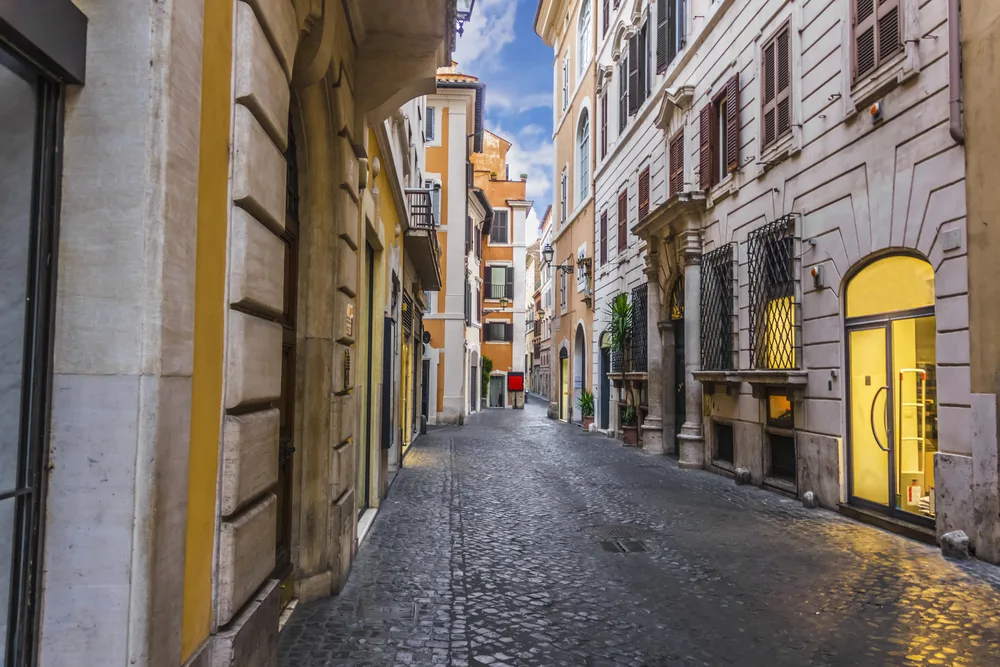
Rome’s vibrant nightlife also provides plenty of opportunities to socialize and make friends. It’s the ideal choice for those who value a blend of work and leisure
It can be expensive, but you can live in Rome on a budget by renting outside the city centre and using their excellent public transportation system.
Naples
If you want to work remotely at the beach, consider Naples. As the third largest city in Italy with a unique culture and beautiful beaches, this is one of our favourites.
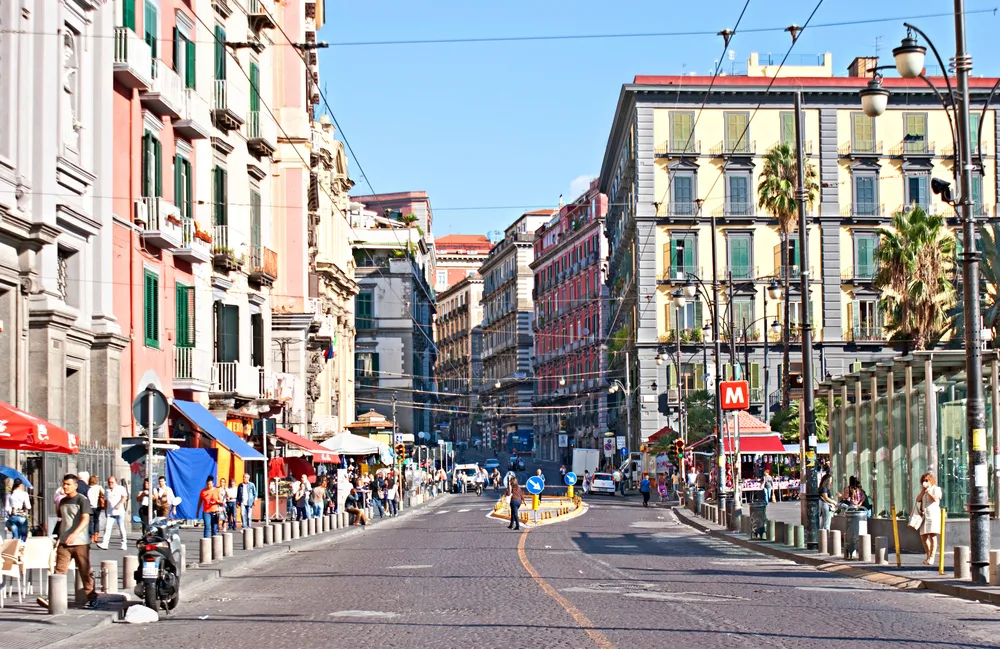
Aside from a vibrant food and nightlife scene, being based in Naples means you can explore the many historical sites and museums, such as the National Archaeological Museum and the Royal Palace of Naples.
While Naples is more affordable than other Italian cities, its infrastructure could use some work.
Sicily
Sicily is the Mediterranean Sea’s largest island and offers a combination of several amazing things – nature, beaches, and urban charm.
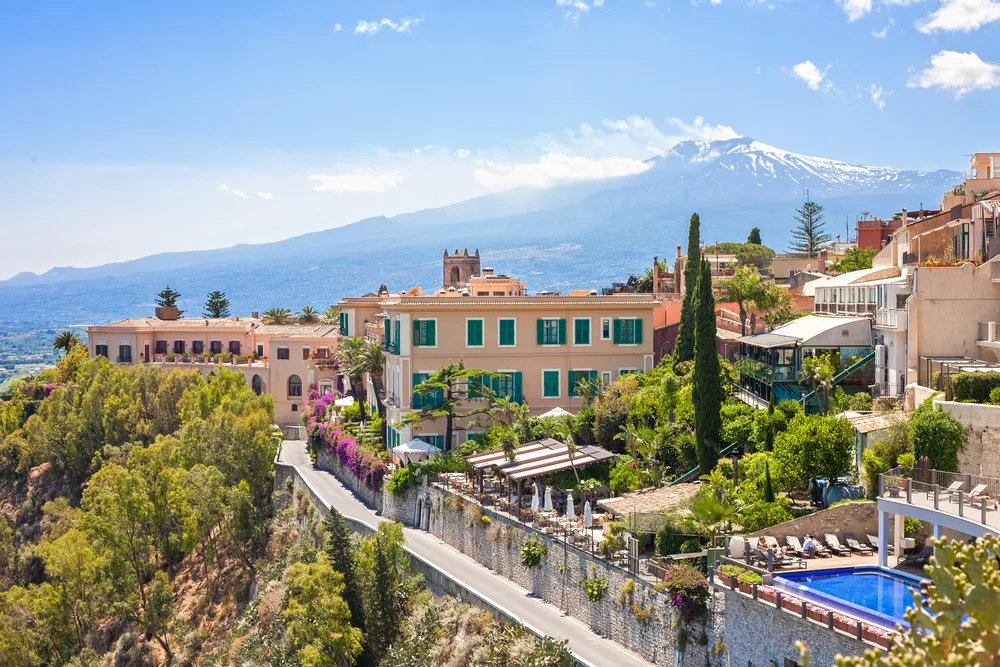
There are several cities on the island, with Catania and Palermo being the primary ones. Catania and Palermo are the best locations for digital nomads as they offer better connectivity than other places. Even still, Sicily’s infrastructure needs improvements.
That said, it’s easy to look past inconveniences with the stunning landscapes and endless fun things to do, like exploring temples, hiking Mount Etna, hanging out on the beach, and enjoying the nightlife scene
Turin
If you want to live in a smaller but lively destination, Turin is a great option. This university town is home to many students and digital nomads.
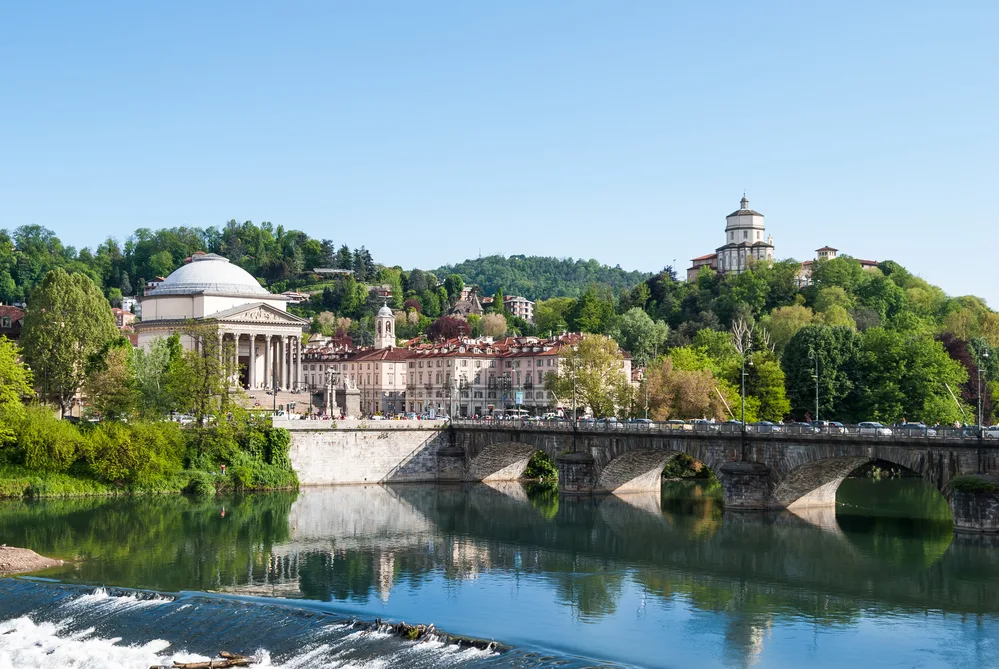
Turin is affordable, fun, and offers ample opportunity for a healthy work-life balance. Digital nomads enjoy museum-hopping, meeting other nomads, and exploring the mountainside
Cost of Living in Italy
Italy’s cost of living has decreased in recent years, falling behind the UK and the US. It’s also one of the more affordable countries in Europe.
A single person’s estimated monthly costs are $871, not including rent. That said, this number varies depending on which city you live in and your lifestyle.
Here’s a rundown of average costs for basic expenses in Italy for digital nomads:
- Accommodation: Average rent for a one bedroom apartment in the city centre is $709.44. Outside the city centre, rent averages $552.69.
- Dining: The average inexpensive meal at a restaurant is $16.32.
- Drinks: A beer usually costs about $5, while a coffee is less than $2.
- Transportation: A one-way ticket for local transportation is under $2 and a monthly pass is about $38. Taxi fare starts at $5.44.
Cafes and Coworking Spaces in Italy
One of the draws of being a digital nomad in Italy is how many efficient workplaces there are. There are countless cafes, espresso bars, unique coffee shops, and coworking spaces.
Some locations even combine a coworking space with a cafe for a cosy vibe.

Note: In more traditional cafes, working on your laptop can be frowned upon so you may want to make sure it’s a cafe suitable for working beforehand, such as the ones below.
Cafes & Coworking Spaces in Florence
- Ditta Artigianale Sprone: a laid-back, trendy cafe with ample seating, coffee, and pastries
- The Social Hub Coworking: an efficient workspace building a global community of creatives and entrepreneurs
- Impact Hub Florence: a conveniently located, modern coworking space
Cafes & Coworking Spaces in Milan
- Gogol & Company: a bright bookstore with a cafe and various working spaces
- Talent Garden: a coworking space that also offers training opportunities, community events, and mentorship programs
- Flex Coworking Milano: easily accessible workspace that provides networking and training possibilities
Cafes & Coworking Spaces in Rome
- Materia Cafe: a restaurant that serves coffee, sandwiches, and desserts, popular for working
- Pick Center: a coworking space with flexible seating and plans
- Wire Coworking: an eclectic mix of functional working and socialization spaces, including a fitness centre
Cafes & Coworking Spaces in Naples
- Cisterna Bistrot: a popular bistro for digital nomads offering delicious food and drinks
- Study Room Napoli: a coworking space with various workspaces, a coffee bar, and a lounge area
- Dialogue Place: an affordable workspace with flexible packages
Cafes & Coworking Spaces in Sicily
- Verso Coffice Catania: a unique laid-back bar and coworking space hybrid
- @localhost (Catania): a comfortable coworking space with various work and networking possibilities
- Beet Community (Palermo): a coliving and coworking space ideal for community and convenience
Cafes & Coworking Spaces in Turin
- MagazziniOz: a quirky restaurant with a relaxing atmosphere ideal for working
- Impact Hub Torino: similar to Florence’s Impact Hub, where entrepreneurs and innovators can join for productivity and networking
- Toolbox Coworking: an efficient space to work and hold or attend events and workshops
How to Find Long-Term Accommodation in Spain
It’s usually best to rent short-term rentals first. This helps you get to know a city and see potential long-term accommodations in person.
You can use Booking.com and Airbnb to book your initial stay. Then, you can ask locals or use Facebook groups like this one to find longer-term rentals.
Downsides of Being a Digital Nomad in Italy
Fun activities, friendly locals, networking opportunities, and the Italy digital nomad visa are just a few draws to this stunning destination. In fact, the pros far outweigh the cons.
That said, the most significant drawbacks to being a digital nomad in Italy are crowds and costs.
Italy is one of the most popular tourist destinations, so it gets busy, especially during summer. Because of its popularity, it can also be expensive during peak season.
To avoid these downsides, opt for travelling away from touristy areas during summer.
Read more: 5 Downsides of Being a Digital Nomad (& How to Overcome Them)
Is Italy Safe for LGBTQ+ People?
Yes, Italy is safe and enjoyable for LGBTQ+ people. Italy has made many steps forward in equal rights for the LGBTQ community in the last decade, and most Italians are accepting of others.
Some of Italy’s most popular gay-friendly places are:
- Catania, Sicily
- Rome
- Torre del Lago, Tuscany
- Florence
Do I Need to Learn Italian?
You don’t need to learn Italian to be a digital nomad in Italy, especially in popular travel cities.
That said, we recommend learning basic phrases to show consideration for the culture and to help you get by when you visit places with fewer English-speaking people.
Duolingo can help you learn common phrases. Google Translate is also a helpful tool to have ready on your phone if language becomes a barrier.
We hope this guide to being a digital nomad in Italy was helpful to you! If you’re interested in learning about working remotely in other European countries, you might be interested in reading these articles:

